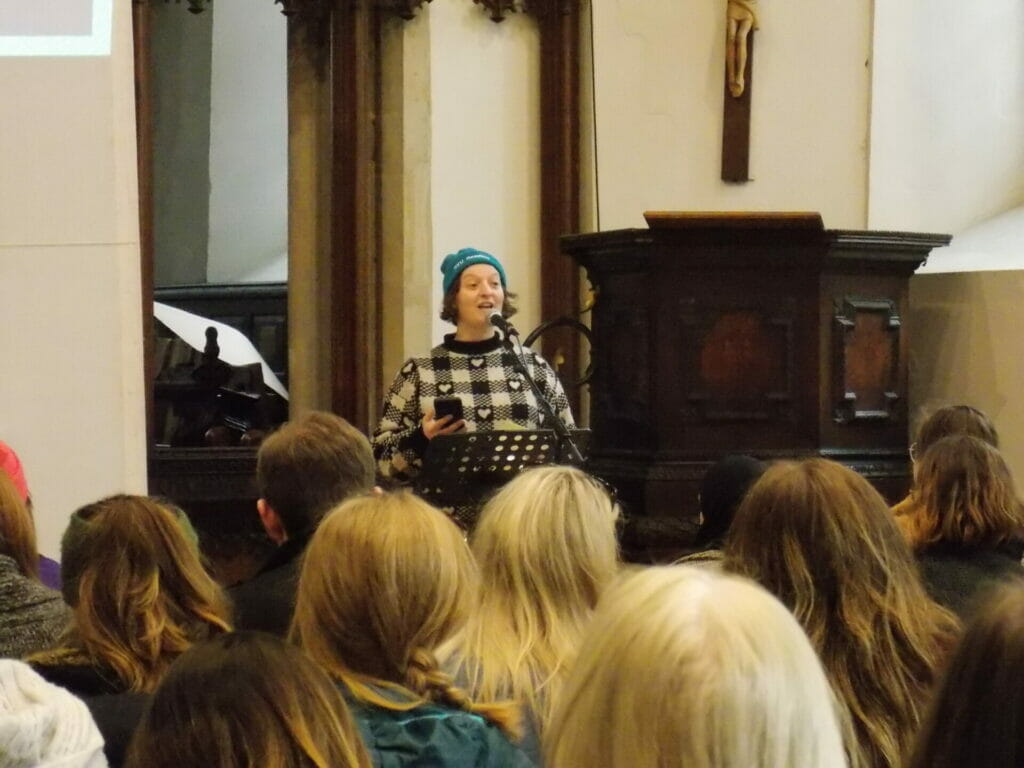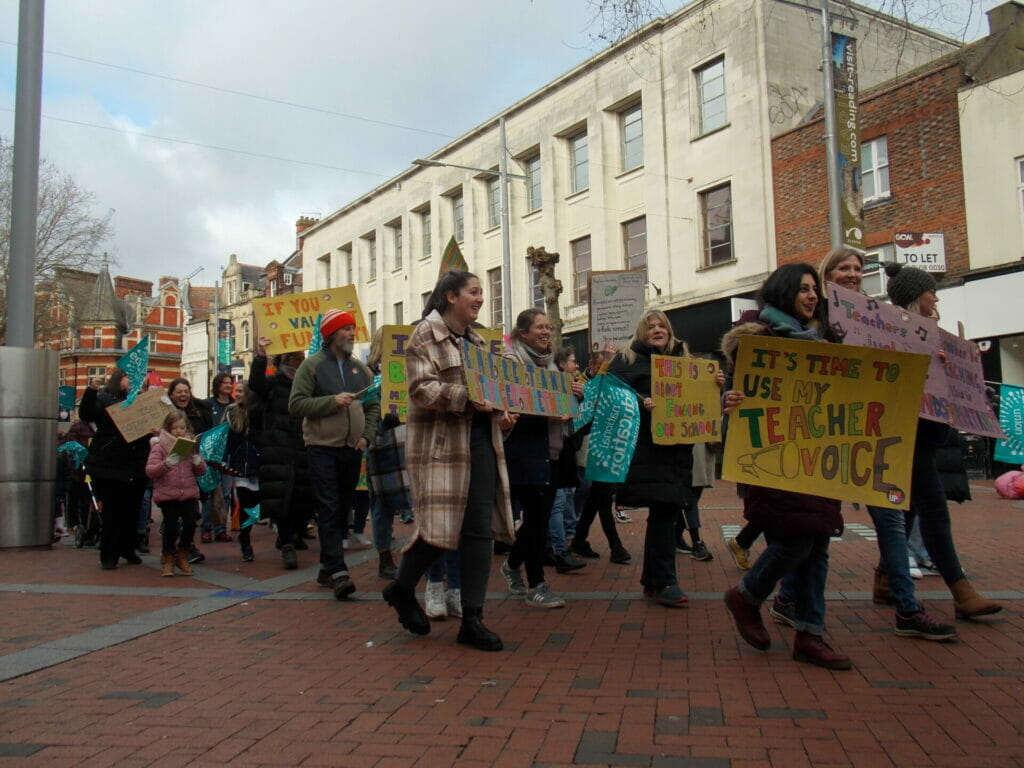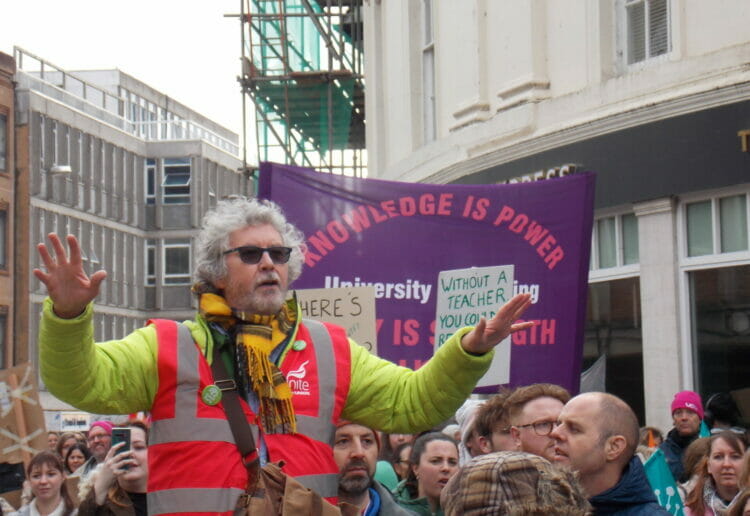ON WEDNESDAY, February 1, teachers across the UK took part in industrial action in the latest round of public sector strikes.
Members of the National Education Union took strike action the first of four planned days, protesting falling wages and real-terms budget cuts in schools.
Following a public demonstration in Reading, which saw a march from Broad Street and to Town Hall Square, speakers addressed a rally in St Laurence’s Church.
Attendees heard from the NEU Reading’s president, Catherine Kington, as well as representatives from ASLEF, and University and College Union.
Members of the NEU voted to strike due to the lack of funding being provided to education services which they say is leading many to leave the profession and under-serving pupils.
They also argue that they are subject to real-terms pay cuts as living costs rise and pay stagnates.
The NEU claims that schools in Reading will see a shortfall in funding of around £2.5 million in the 2023/24 school year.

This amounts to a loss of around £123 in investment per pupil, with 44 of 50 schools in Reading set to see cuts.
Schools in West Berkshire are set to lose around £2.8 million in funding, including schools in Tilehurst and Calcot.
They also cite government statistics from Explore Education which show that teacher training course recruitment in 2022 was down by 23%.
President of the NEU Catherine Kington was among those addressing strikers at the rally in St Laurence’s Church, who said: “Today we joined over half a million workers taking industrial action.
“Workers from seven trade unions have all walked out today because they’ve had enough of poor conditions and poor pay.”

Ms Kington read from a letter she received from Reading West MP Sir Alok Sharma after she wrote to him voicing her concerns.
“He says that education is better funded than it has been in decades, but teachers have lost 23% in real terms since 2010.
“Our budgets are overstretched already, in the middle of a cost of living crisis, and teachers are leaving in droves.
“One third of teachers leave within five years of qualifying, but we will stay silent no longer.”
Speaking of the pay which has been awarded to teachers, she said: “The average pay rise for teachers as awarded in the autumn was still 7% behind inflation.
“It was also unfunded, meaning that schools had to pay for it themselves out of their already stretched budgets.
“How cowardly is that– our school doesn’t have any extra cash hidden away.”

Education secretary Gillian Keegan said last week: “On the top of my in-tray when I got this job was a joint letter from the four major teaching unions.
“It asked for an extra £2 billion next year and the year after to support our schools with increased costs and to help fund this year’s pay awards.
“The unions asked, we delivered.”
Tim Martin, a teacher who works in Reading, said: “It’s not just about the pay rise for teachers.
“Throughout schools in Reading there are children who are having maths, science, geography, and languages taught by cover supervisors, and it’s just not good enough.”

Speaking about Mr Keegan’s comments, Mr Martin said: “They may have said that, but they have shown no willingness to actually engage with any of the groups who are currently attending.
“They don’t seem to have any plans to improve any of our public services at all.”
Mr Martin said that retention was a major issue for stabilising education services: “I’d like to see investment in making sure people are able to stay in teaching, that’s the key issue.
“Pay is one of those things– if you can get a better-paid job elsewhere with those qualifications.
“It’s a rewarding job, but not an easy one, and people will not stick it out if they don’t think their work is being recognised.”























